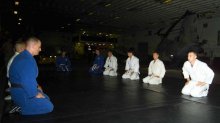Lao Tzu is perhaps the world’s most popular author. In the 2600 years since its initial publishing, Lao Tzu’s masterpiece, Tao Te Ching, has been translated into more than 200 languages, and reprinted more often than nearly any book in human history.
Lao Tzu was a great teacher, and a master of brevity. Though the Tao Te Ching is merely five thousand characters (less than fifty pages of English text), it conveys profound wisdom. His writing was potent, concise, and meaningful: all qualities which would prevent Lao Tzu from succeeding as an AdSense publisher.
No, Lao Tzu could never support himself on income from AdSense, or other contextual advertising systems. He probably couldn’t even earn enough to feed his water buffalo. Why?


